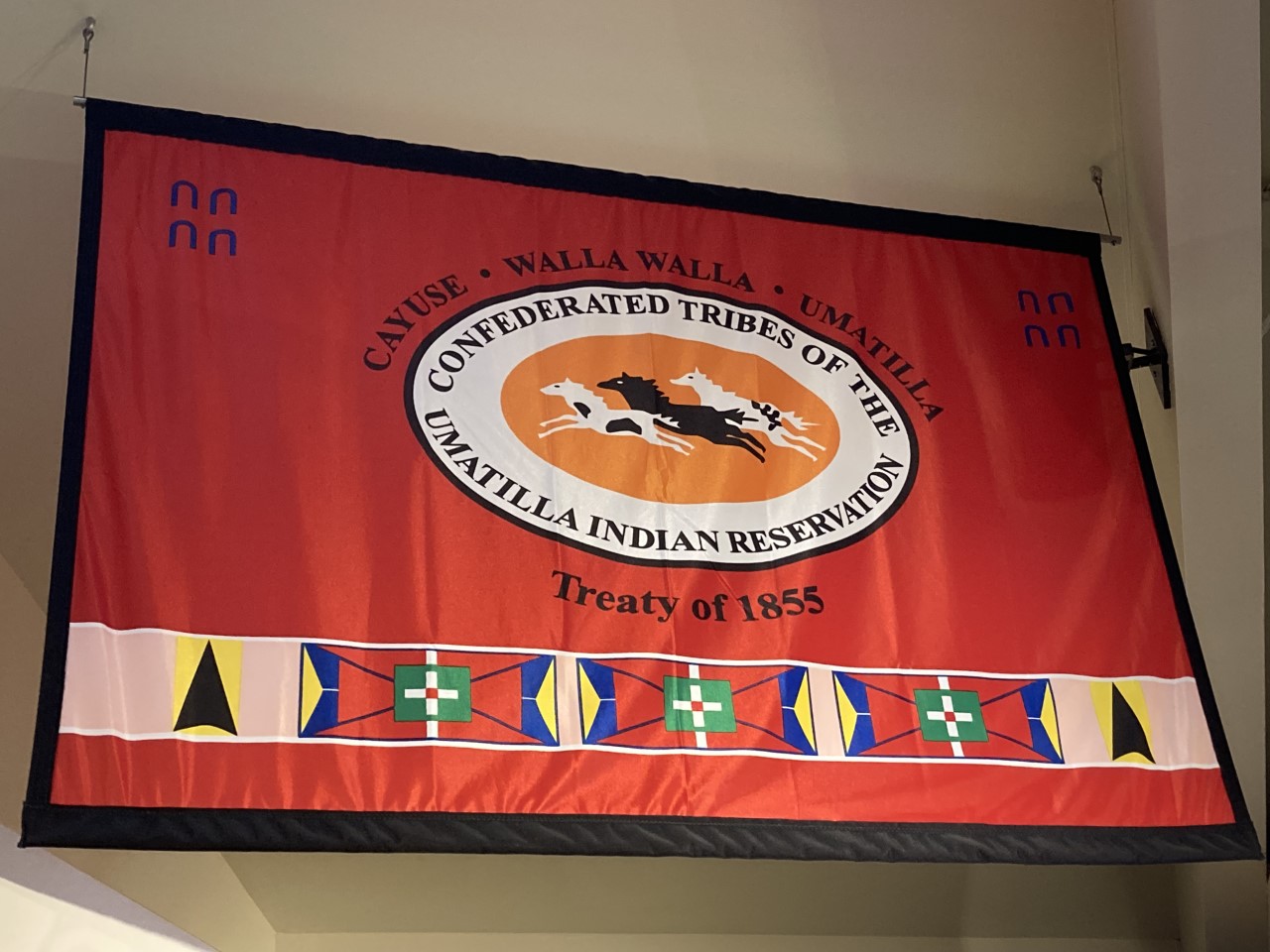
- Details
- By Native News Online Staff
The Confederated Tribes of the Umatilla Indian Reservation (CTUIR) have secured a $150,000 grant from the Meyer Memorial Trust to enhance literacy among children on the Umatilla Indian Reservation (UIR). This funding will support the development and implementation of culturally relevant and age-appropriate reading materials and teaching methods.
Zenaida Lyles, grants specialist for the Department of Children and Family Services (DCFS), emphasized the project's comprehensive approach, involving individuals across all age groups—from young children to elders—to better prepare the youngest members for school. Training sessions will be provided to parents, family members, guardians, youths, and childcare center staff, focusing on engaging children in enjoyable activities that teach the alphabet, numerals, colors, and shapes.
“This project aims to involve very young children, youths, adults and elders to better prepare our very young children for school,” Lyles said. “Parents, family members, guardians, the youths and staff of child care centers will be provided training on how to engage young children in fun and enjoyable activities as they learn the alphabet, numerals, colors and shapes.”
The initiative plans to procure existing culturally and age-appropriate materials and record stories shared by tribal elders, complemented by illustrations from local artists for books and digital products. This effort addresses the concerning statistics from the National Assessment of Educational Progress (NAEP), which reported that only 43% of fourth graders in the United States scored at or above a proficient reading level, with American Indian/Alaska Native students scoring 19% in 2019 and 18% in 2022.
Lyles expressed optimism about the project's long-term impact, aiming for future generations of school-aged children to navigate educational paths alongside their mainstream peers. The project encompasses the full spectrum of human growth and development, from cradle to career and beyond, valuing the teachings of elders and ensuring their perpetuation among younger members.
DCFS will collaborate with various departments, agencies, and entities, including the InterMountain Education Service District’s Early Learning Hub, to address training needs. The project is slated to begin in mid-April and will conclude in May 2026.
The project comprises four key components: training for staff, youths, families, parents, and guardians; procurement and development of literacy materials; implementation of techniques and methodologies from the training; and project assessment. Information about participation will be disseminated through flyers and posted on various social media platforms, including the Confederated Umatilla Journal and KCUW radio station.
Administrative operations will be based at the DCFS Family Engagement Program, with multiple sites utilized for training and implementation, such as the CTUIR’s Átaw Miyánašma Learning Center, Head Start, and potentially the CTUIR Senior Center. Community members are encouraged to participate, with attendance limited only by the capacity of the gathering sites.
“We look forward to generations of school-aged children who can navigate the education paths side by side with their mainstream peers,” Lyles said. “We address the spectrum of human growth and development from cradle to career and beyond. This project is for all community members. We value the teachings of our elders, and we work to perpetuate them and pass them on to our younger members.”
More Stories Like This
Bard College Center for Indigenous Studies (CfIS) Hosts Annual Symposium With Keynote Speaker Miranda Belarde-Lewis on March 9–10American Indian College Fund Announces Spring 2026 Faculty Fellow Cohort
Navajo Nation Signs $19 Million Diné Higher Education Grant Fund Act into Law
Dr. Shelly C. Lowe to Be Inaugurated as IAIA President March 26–27
Tlingit Language Courses Expand for Students to Learn With Families At-Home
Help us defend tribal sovereignty.
At Native News Online, our mission is rooted in telling the stories that strengthen sovereignty and uplift Indigenous voices — not just at year’s end, but every single day.
Because of your generosity last year, we were able to keep our reporters on the ground in tribal communities, at national gatherings and in the halls of Congress — covering the issues that matter most to Indian Country: sovereignty, culture, education, health and economic opportunity.
That support sustained us through a tough year in 2025. Now, as we look to the year ahead, we need your help right now to ensure warrior journalism remains strong — reporting that defends tribal sovereignty, amplifies Native truth, and holds power accountable.
 The stakes couldn't be higher. Your support keeps Native voices heard, Native stories told and Native sovereignty defended.
The stakes couldn't be higher. Your support keeps Native voices heard, Native stories told and Native sovereignty defended.
Stand with Warrior Journalism today.
Levi Rickert (Potawatomi), Editor & Publisher


